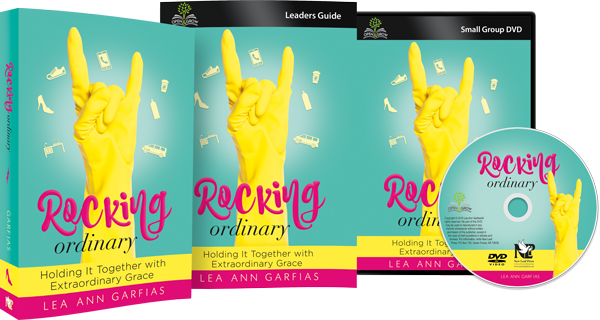What is the Trivium?
The biblical Trivium is simply an organized method of teaching children, similar to the historic “classical” education philosophy, recognizing that all knowledge, understanding, and wisdom originates from God.
What are the Trivium Stages?
 The Trivium stages are knowledge, understanding, and wisdom. These three are interwoven throughout Scripture. (See Ex. 31:3; Job 15:8-9; Prov. 1:7-8; Jer. 9: 23-24; Rom. 1:18-23; Eph. 1: 8-9 among many others). Knowledge is the basic accumulation of facts and ability. This stage is the longest, occurring from birth to around early adolescence. Some call this the “grammar stage.” Understanding is the growth of logic and reasoning. Subjects are harmonized, motives are questioned, and logic is developed. This stage begins at different times for each child, and should not be rushed. The parent will see the mentality of the child change and thinking patterns emerge around age 12 or 13. Some call this the “logic stage.” Wisdom is the application of knowledge and understanding to godly living. The young person is equipped to continue learning and growing academically and spiritually. He has the ability to communicate his knowledge and understanding effectively. He should enter this stage a few years before biblical adulthood (age 20). Some call this the “rhetoric stage.”
The Trivium stages are knowledge, understanding, and wisdom. These three are interwoven throughout Scripture. (See Ex. 31:3; Job 15:8-9; Prov. 1:7-8; Jer. 9: 23-24; Rom. 1:18-23; Eph. 1: 8-9 among many others). Knowledge is the basic accumulation of facts and ability. This stage is the longest, occurring from birth to around early adolescence. Some call this the “grammar stage.” Understanding is the growth of logic and reasoning. Subjects are harmonized, motives are questioned, and logic is developed. This stage begins at different times for each child, and should not be rushed. The parent will see the mentality of the child change and thinking patterns emerge around age 12 or 13. Some call this the “logic stage.” Wisdom is the application of knowledge and understanding to godly living. The young person is equipped to continue learning and growing academically and spiritually. He has the ability to communicate his knowledge and understanding effectively. He should enter this stage a few years before biblical adulthood (age 20). Some call this the “rhetoric stage.”
Are the Trivium stages exclusive?
There is definite overlap to each Trivium stage. The knowledge child should be trained in wisdom and understanding; the understanding youth must continue to gain knowledge and yet more wisdom; the wise adult seeks after more knowledge and understanding. Yet the Creative order – and historic educational patterns – bare out the Trivium stages. God created young children to soak up information like little sponges. Youths question and explore logic. Adults must live out their learning practically.
How does the Trivium compare to Classical Education?
The Trivium pre-dates Classical curriculum, calling upon the Hebrew pattern of education seen throughout the Old Testament as its pattern. (For more references, see Ex. 35: 31; Ex. 36:1; Job 32:7-9; Dan 1:4; Dan 1:17: I Kings 7:14; Prov. 3:19-20; Prov 5: 1-2; Lk 2:46ff; Eph 1:17-18; Col. 2:2-3). It would seem the Israelites’ captors, Babylonians copied this Hebrew pattern of learning; soon the Greeks and Romans became famous for their Trivium and Quadrivium which would become synonymous with Classical Education. “Classical Education” would become fashionable among home educators when Dorothy Sayers’s 1947 speech “The Lost Tools of Learning,” was widely circulated in the 1980s and 90s, calling for a return to similar three-staged learning emphasizing fundamentals. Ms. Sayers made a critical error in her speech, however, that few seemed to catch. She states that it matters not from whence this educational pattern comes. But I beg to differ. Realizing the biblical origins of the Trivium brings our education back to where it belongs: at the feet of the Master, the Creator of us all.
Is the Trivium Difficult to Teach or Learn?
Absolutely not. The more I learn of education in biblical truth, the more I realize how easy it is to teach my children simply, wisely, and deeply in all subjects. Here are a few principles: ~ Every subject is saturated with God’s Word and God’s principles. From the beginning, the child learns to “search the Scriptures daily, whether these things were so” (Acts 17:11). ~ Learning comes from real sources as often as possible – field trips, interviews with veterans, reading literature, seeking primary sources. Few workbooks and textbooks are needed. ~ The family learns together, creating a culture of biblical growth and encouragement within the home. ~ Subjects are studied on a literal level and applied to how we live, behave, and believe today, making no subject a dead or boring subject.
Is it too late to begin the Trivium?
It is never too late to follow God’s principles for teaching our children. The entire family will benefit from seeking after God’s knowledge, understanding, and wisdom and applying it to our lives.








I’m very intrigued by the Trivium and Classical Edu. I’ve gotten mixed reviews on this method in the Christian community.
For about 2 yrs. now I’ve been thumbing through that big hunkin’ Teaching The Trivium book by the Bluedorns.
It’s confusing to know sometimes what the best resources are when wanting to teach the Trivium way! Too many choices too!
I’m not giving up on this method, just need specific direction.
LikeLike
You have an excellent resource already. I have read Teaching the Trivium several times through and use it for a constant help.
The one thing I love about teaching from this viewpoint is the flexibility. I can use whatever tools I find that adapt well to a biblical, literal teaching. There is so much freedom, as opposed to a prescribed curriculum.
I hope to more fully answer your question in a future post, discussing how to evaluate and find exciting resources for a biblical Trivium approach.
LikeLike
Loved your post on this. I have never so clearly heard anyone put it in Biblical roots, even the Bluedorns, although I like their book alot. Have to go look up those Bible references.
LikeLike
In the appendix of Teaching the Trivium, Harvey and Laurie Bluedorn share the Scriptural basis of the Trivium in much greater detail. I spent several days digging through the references and notating them in my Bible. The experience was so eye-opening for me.
LikeLike
This was a very informative, helpful post. I’m always eager to learn about different methods of homeschooling, and the Trivium had scared me a little bit – it sounded so rigid and academic. The way you’ve portrayed it though – especially the basis that everything is grounded in God’s word – made it sound usable, flexible, and worthy of investigation. Thank you!
LikeLike
That is the real beauty of the Trivium, as opposed to a humanistic classical education. Classical education tends to be more rigid and burdensome. But learning with biblical methods show that His yoke is easy and His burden is light.
LikeLike
Really appreciated your post. I like how you deferentiated between the Trivium and Classical. I generally use the term “classical” to explain our education method. I think in part because of ease of explanation and in part because I hadn’t taken the time to truly consider the difference. To me, they were one and the same.
You are so right about the source being important!
LikeLike
To most people, classical and the trivium are the same. “Christian Classical” is an easy way of explaining the Trivium to those who haven’t heard of it. : )
LikeLike
“Subjects are studied on a literal level and applied to how we live, behave, and believe today, making no subject a dead or boring subject.”
I would really like to hear you expound on this a bit more. I haven’t been able to get the Bluedorn’s book yet, but have been intrigued by what you have shared. However, I must admit that I am a bit confused as to how the above statement is actually “walked out”.
LikeLike
Good question, Nicole. I will be sharing with you a really great math resource soon – Revealing Arithmetic by Katherine A. Loop – that shows how our beliefs on math influence how we study it and use it daily.
Also, I am going to tell you about a wonderful history program – Truth Quest History by Michelle Miller – that lets your child study books and resources on topics, people, and events in chronological order while enabling you to converse about these events together and enjoy the learning and thinking experience.
Why study anything if it doesn’t apply to me? My husband reminds me this often: share The Why.
I will definitely explore this idea again. Thanks, Nicole.
LikeLike